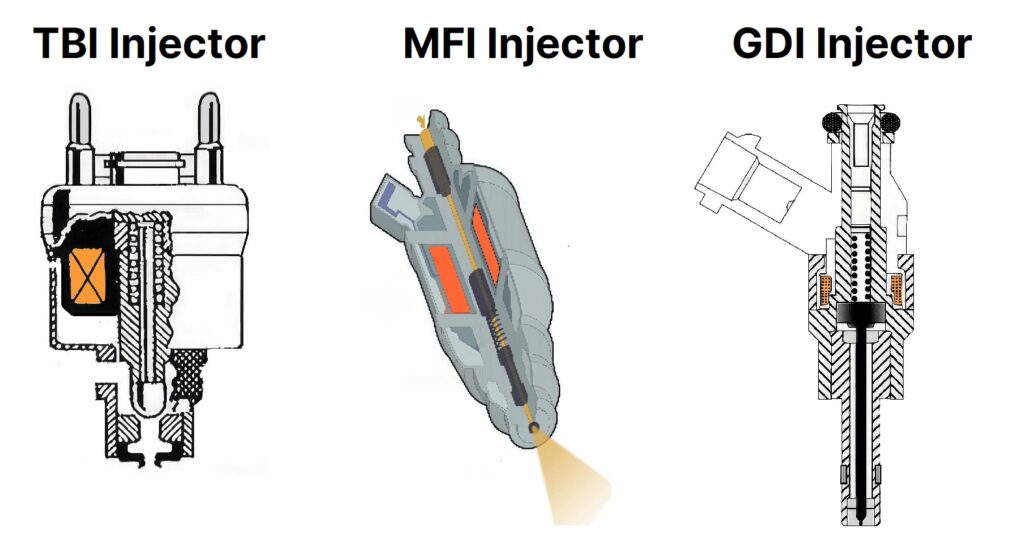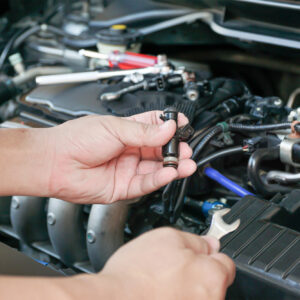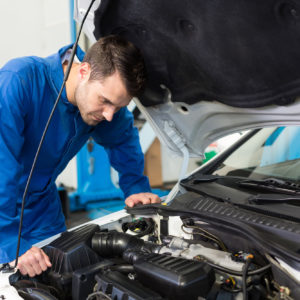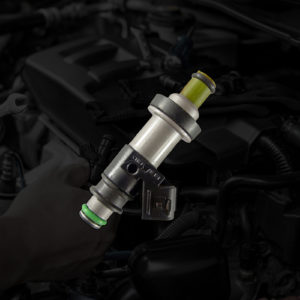How long do fuel injectors last? After all, these handy parts are responsible for dispensing fuel to your engine’s cylinders as part of the fuel system. If they fail, it can lead to misfires, the engine running rough, abnormal odors, and more. So, it’s important to know when you need to replace them and if there’s any way to lengthen their lifespan.
Average Fuel Injector Lifespan
The lifespan of your fuel injectors depends on how well you care for them, the quality of the injectors themselves, and the type of fuel you use. Fuel injectors can actually last as long as your vehicle does. Normally though, you can expect fuel injectors to last around 50,000 to 100,00 miles. Modern driving conditions or improper maintenance are usually to blame for this shortened lifespan.
How Do Fuel Injectors Work?
Fuel injectors atomize fuel into a fine mist through their nozzles. The fuel mist is released into the engine’s intake valves and is easier to burn in this form. If left unfixed, clogged injectors impede engine performance and eventually lead to failure.

How To Extend the Lifespan of Your Fuel Injectors
While fuel injector failure is not inevitable, there are still a few things you can do to improve their lifespan.
Fuel Injector Cleaning
To keep your fuel injectors in good shape, experts recommend cleaning them every 25,000 to 30,000 miles. This type of maintenance can help lengthen your fuel injectors’ lifespan.
Note, however, that most vehicle owners never have their injectors cleaned and never need to replace a single one for hundreds of thousands of miles. Injector technology has greatly improved since the 1980s.
Changing Fuel Filters
Fuel filters are very often neglected, but changing your fuel filter regularly, at least every 30,000 miles, is a good idea. These filters keep dirt and other particles from sullying the fuel system. In this way, they help maintain the efficiency of the system.
That being said, fuel that is stored in a steel tank, such as on a farm, can contain rust that is so fine it will pass through even a new fuel filter and clog the input screens in the injectors along with the fuel flow passages in the injector itself. So try not to use fuel from a source that might contain this type of rust. This happens very frequently in rural areas where farmers have large home-built fuel tanks out of which they fuel their vehicles and equipment.
Fuel that is stored in a steel tank, such as on a farm, can contain rust that is so fine it will pass through even a new fuel filter and clog the input screens in the injectors along with the fuel flow passages in the injector itself.
– Richard McCuistian, ASE Certified Master Automobile Technician

How often you need to change the filters depends on your vehicle, as it ranges from every 20,000 to 150,000 miles. We recommend checking your vehicle’s manual for the exact mileage.
If you drive a truck that uses a lot of fuel, change the filters every 10,000 to 15,000 miles.
Engine Inspections
Checking your engine regularly is also important to maintaining a long fuel injection lifespan. This way, you can keep an eye out for any leaks or other potential problems. Bringing your vehicle to a licensed mechanic for a routine checkup will also help you know if there’s something wrong. Issues with the engine can also affect the fuel injectors and vice versa. Catching these malfunctions early will help maintain both a healthy engine and healthy fuel injectors.
Choosing the Right Replacement Parts
There are a host of different fuel injectors out there. It’s essential to choose the right size, body, and connector style when it’s time to buy new fuel injectors, or your engine might end up running lean. Also, make sure to purchase from a trusted source to ensure the build quality of the replacement injector is up to snuff and won’t have an even shorter lifespan than your other injectors.
Is It Worth Replacing Fuel Injectors?
Fuel injectors are an important part of your vehicle’s fuel system. If you have high-quality injectors, keeping them in tip-top shape is important, but you’ll generally only need to replace them if they fail.
Any information provided on this Website is for informational purposes only and is not intended to replace consultation with a professional mechanic. The accuracy and timeliness of the information may change from the time of publication.






























